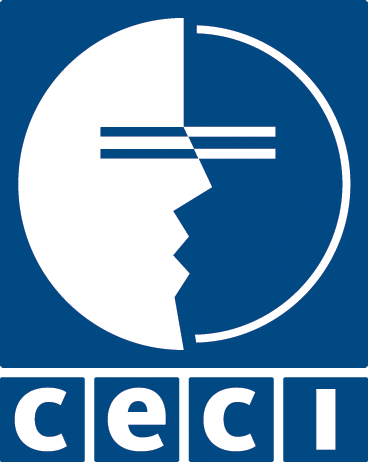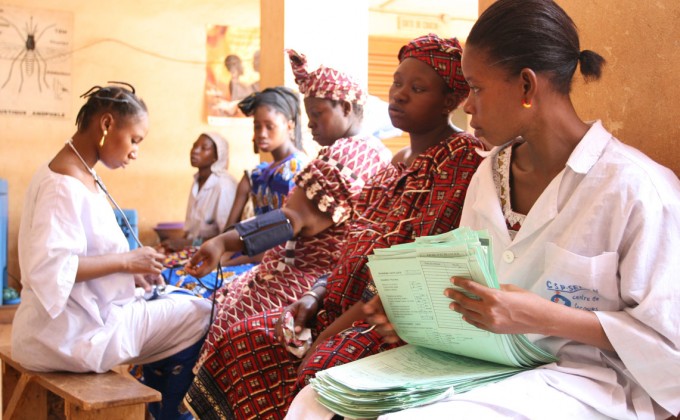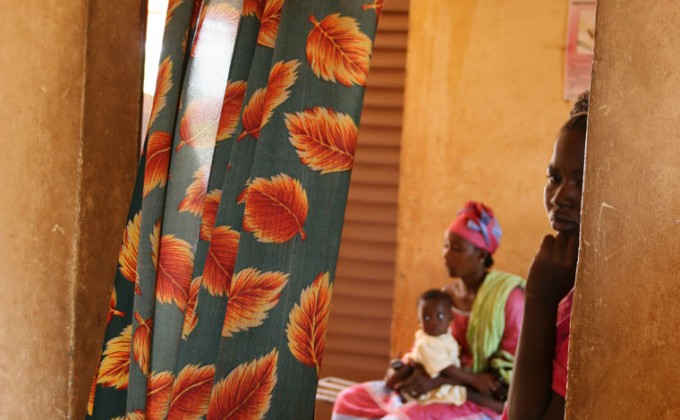The project seeks to improve the health of the people of three regions in southwestern Mali. It intends to build capacity among key actors of the country’s decentralized health system and improve their ability to work jointly. The goal is to give the population, women and children in particular, fair access to quality services adapted to their needs, and to engage the communities in the process of improving their health system.
Better Managed System for Better Case Administration
The project’s main activities are focused on capacity building through mentoring, training, awareness building and advocacy/lobbying of targeted social issues, local and
regional dialogue, supervision and support missions, and study missions. Local governance, quality and accessibility of services, and social engagement are the key
components of this eight-year project integrated within Mali’s new Ten-year Plan for Social and Sanitary Development (Plan Décennal de Développement Sanitaire et Social
du Mali ) (2014–2023).
The project aims to strengthen the ties between actors of the civil society and the decentralized health bodies, thus fostering efficient collaborative and joint actions. This
improves the financial and administrative management of all the structures (more regular meetings, improved medication management, increase in membership, etc.).
Furthermore, the health services have gained a better understanding of management and planning tools (data processing, building a research protocol, etc.) as well as technical capacities for the case management of patients (better communication, confidentiality, less wait time, etc.).
The Gender Equality Approach
Throughout the project, gender equality was emphasized in such a way that women were actively involved in all aspects, both as implementers and beneficiaries of the intended changes. We observed significant progress in the representation of women and youth within organizations of the social sector, greater awareness of women-specific issues in health services, and stronger knowledge of their rights from all the different actors.
Inspiring Success Stories
As the project is coming to an end, four specific innovations should be praised. They have contributed greatly to improving the health of women and children.
- Constitution of Training Monitoring and Organizing Committees of the Community Health Associations (Associations de santé communautaires – ASACO)
- Constitution of Gender Equality Centres that serve in each region as hubs for trainers responsible for the promotion of gender mainstreaming and women’s health rights within their department
- Constitution of Female Health Services Users Committees (CFU) in rural settings, which promote greater use of health services offered to women and their children, as well as the participation of women in the management of health services
- Constitution of Quality Committees, a way to empower and engage the partners, and to improve the quality of services
Project figures :
Number of direct beneficiaries among professionals of the decentralized health sector:
1153 (including 443 women)
Number of people who took part in the female leadership training sessions in CFUs of the Kayes and Ségou regions:
106 people (including 3 men)
Number of training sessions for members of community health associations organized and facilitated by local teams:
16
Proyectos
Presencia
El CECI
Implicarse
Informarse
Donar
Contáctenos
Enlaces externos







